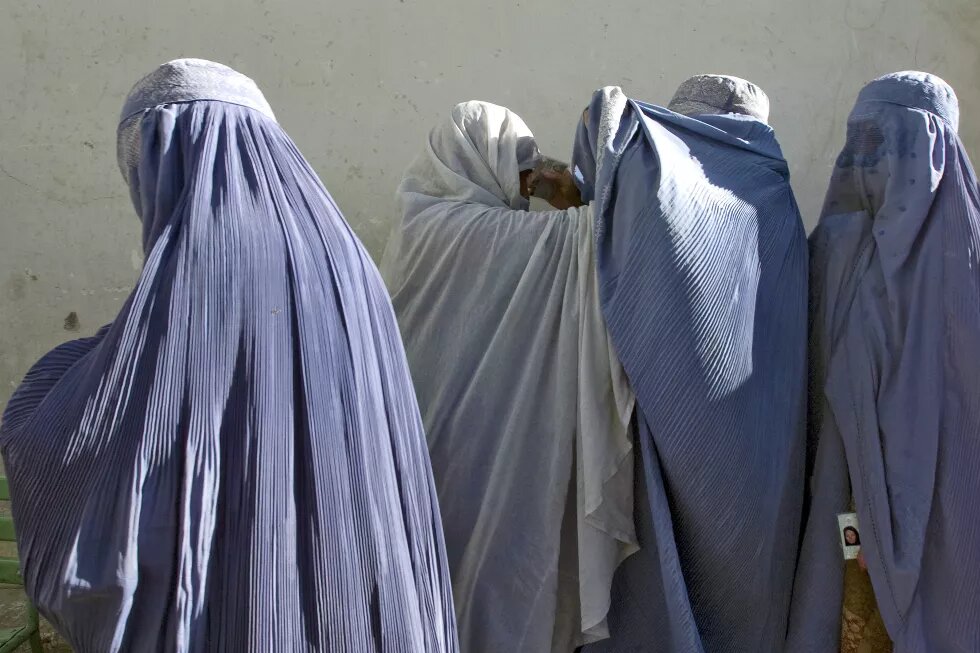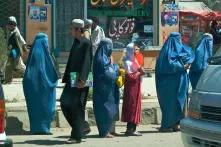
Download Publication (PDF in Englsih, 52pages, 3.21MB)
EXECUTIVE SUMMARY
The security needs of Afghan men and women differ. Whereas men bear the brunt of the direct impacts of conflict, women disproportionately suffer from the indirect effects such as increased levels of domestic violence, decreased access to health care and poverty. Due to this difference in security needs, gender must be taken into account when evaluating the relationship between citizens and the Afghan National Police (ANP).
Heinrich Böll Stiftung commissioned this study to examine the perceptions active women in Kabul hold of the police. Active, urban women were targeted specifically as they are more likely to interact regularly with police than women that spend a majority of their time at home. The report seeks to i) establish a gender-focused baseline for the evaluation of community trust building and police capacity building programs; ii) identify major trends and evolutions in public perceptions of the ANP in Kabul, notably amongst women; and iii) propose pragmatic recommendations for improving the relationship between Afghan women and the police.
Given its focus on active, urban women, this study is not representative of all Afghan women. It should be used as an entry point for exploration of gender dynamics in the security sector and a tool for advocating a more gender-balanced approach to supporting the Afghan National Police.
Key findings
Positive police approval ratings by both women and men should not be interpreted as a sign of satisfaction with the police, but rather low expectations. The survey revealed a strong correlation between satisfaction with security and satisfaction with police, demonstrating that security is likely the primary factor considered when Kabul residents of both genders evaluate police performance. Corruption appears to be accepted as a fact of life, and does not detract from high approval of police performance (80% amongst women). Expectations of civilian policing are extremely low. The police are not viewed as a resource for handling Sexual or Gender-Based Violence, the most prevalent safety issue for Afghan women.
The police sector appears to be advancing more quickly than Afghan society in terms of its recognition of women’s risks, needs and rights. In instances where it fails women, the ANP is simply reflecting the restrictions Afghan society imposes on itself. In addition to establishing departments, units and initiatives that specifically target the needs of women, the ANP appears to be mainstreaming women’s issues into broader policies, such as the ANP Code of Conduct.
Much of the gender-related progress in the ANP is the result of pressure from the international community. The implementation of progressive policies faces considerable resistance from individuals of all ranks within the ANP and Afghan Ministry of Interior (MoI). The effectiveness of programs on gender or human rights within the ANP often hinges on the credibility of the interlocutor. Even more than religious beliefs, shared cultural, ethnic or tribal ties are the keys to this credibility, and are thus essential elements for initiatives intended to promote women’s rights within the police force.
Although half of Kabul women are victims of domestic violence, most women would never turn to the police for assistance. Focus groups unanimously stated that family problems should be handled at home or with elders. Women who do seek outside aid are often shunned by their own families. As a result, victims of violence who successfully make it through the justice system often lack a support system to rebuild their lives afterwards. Given that Kabul women are considered to be the most modern and open-minded in Afghanistan, their compliance with this cultural belief and the lack of social services available to women raises serious doubts about the feasibility of addressing domestic violence via the police on a national scale in the short- or even medium-term.
The necessity of women police is accepted by the ANP and Afghan society, albeit with restricted roles. For Islamic reasons, policewomen are required to conduct security checks of women. There is a growing acceptance of women investigators in Family Response Units (FRUs), which are designed to handle family-related problems. However, even with training, policewomen are often expected to fetch tea, work in the kitchen, and clean, rather than perform police duties.
Recommendations
The success of the transition in Afghanistan will depend largely on the capacity of the police to maintain law and order and build trust with communities, thereby maintaining confidence in the state. Sustainability and value for money must be constant factors for any initiatives implemented between now and the 2014 deadline.
Community level
1. Focus on community trust building, a cost-effective way to improve state-society relations
Meetings between women police and civilians should be held, by the ANP and/or civil society, to improve the visibility of policewomen and the services they provide (within a safe space), to address women’s issues, and to inform women of their rights and rule of law procedures. Community meetings foster dialogue and establish trust. They also provide a forum for police and community members to: i) define their own relationship based on their needs and expectations; ii) ask questions and share concerns; and iii) feel recognised and heard.
2. Implement a badge system, a practical step for increased accountability
Visible police identification would provide an inexpensive means of holding police accountable for their actions (e.g. bribery, street harassment). While there is no foolproof means of holding police accountable, the anonymity currently enjoyed by police only contributes to the culture of corruption.
3. Raise awareness of women’s rights with regards to security and related police services
Public awareness campaigns should be used to better inform women and their families of women’s rights and how to defend through the formal justice system. Without knowledge of their rights, women do not have the tools to assess their security needs and interest. Campaigns should be tailored to local contexts in order to be perceived as credible.
Institutional level
4. Support literacy programs as a primary tool for capacity building
Literacy, the key tool for fighting ignorance, renders training more effective and enables self-learning down the road. It also provides police with the ability to do actual police work, which requires reading and writing skills for documenting evidence, recording testimonies, and preparing reports.
5. Train the trainers to enable future training on gender, human rights, and children’s rights
Given the ANP’s high turnover rate, train the trainer programs are essential for ensuring the ANP’s capacity to train recruits later. For optimum impact, train the trainer programs should select individuals that are respected and seen as credible in the province(s) in which they work.
6. Legitimise Family Response Units (FRUs) with equipment, training, and a broader mandate
FRUs, which serve women’s needs, must first be perceived as legitimate and professional within the ANP before they can be perceived as such by the public. This will require a broader mandate from the Criminal Investigation Division (CID), equipment for documenting evidence, and training.
State Level
7. Strengthen coordination between police and justice sector for improved rule of law
NGOs that assist women with legal issues should be utilised as a resource for bridging the police and justice sectors. Partnerships between Family Response Units and NGOs have the potential to render the formal justice system more accessible to women and increase awareness of police services designed to handle family problems.
Regulations within the justice and police sectors also need to be changed so that police and prosecutors can better cooperate on cases. Police in Afghanistan are discouraged and even forbidden in some instances from following up on a case once it has moved on into the justice sector. This removes incentives for police to perform their jobs well when collecting evidence and reporting cases.
International Level
8. Support civilian policing as a key to maintaining political and social unity in Afghanistan
The international community needs to take a unified stance on the importance of civilian policing. The ANP will play a crucial role (distinct from that of the ANA) in the political and social unity of Afghanistan by ensuring law at the community level and representing the national government in a way that is visible on a daily basis.


